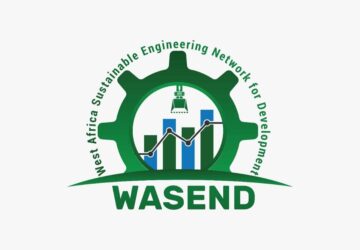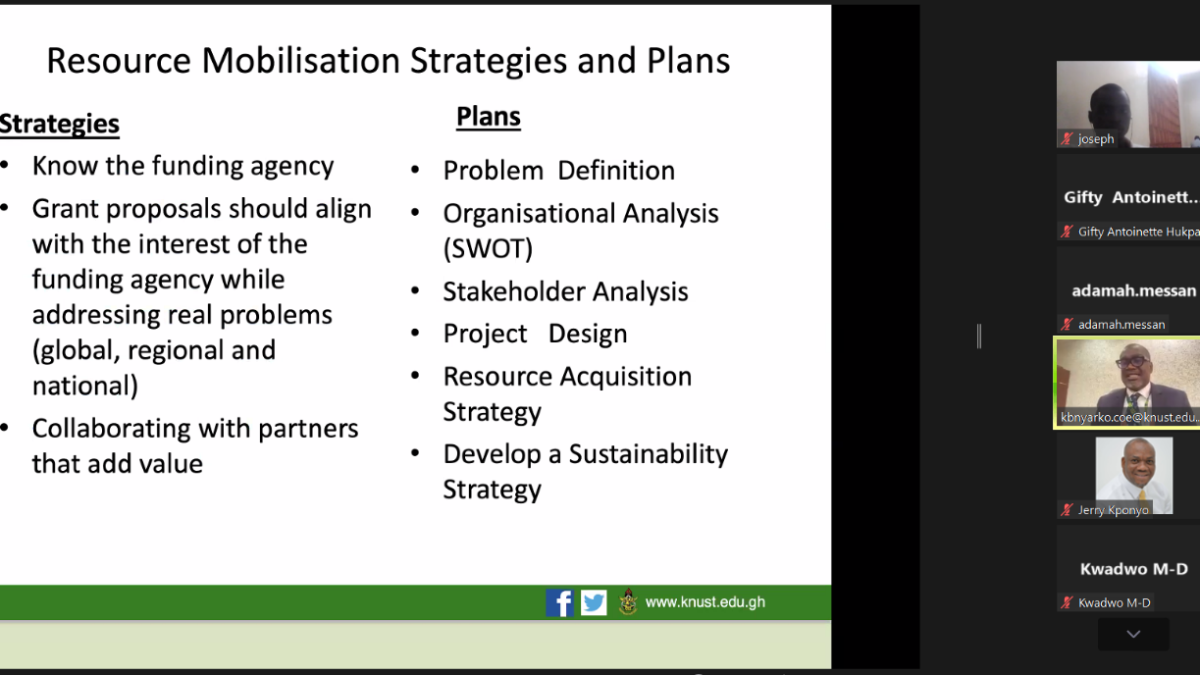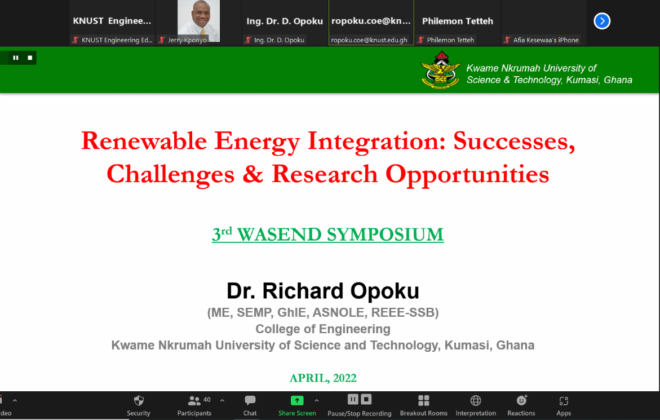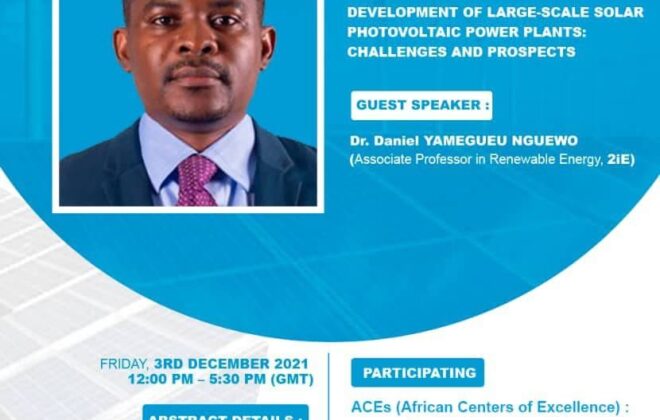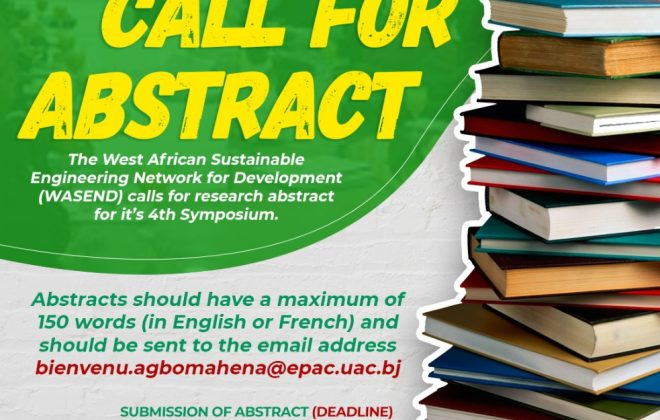WASEND 3rd Capacity Building Workshop
Prof. Kwabena Biritwum Nyarko, Provost, KNUST College of Engineering speaks on Resource Mobilization for Engineering Education and Research in Africa at the WASEND 3rd Capacity Building Workshop
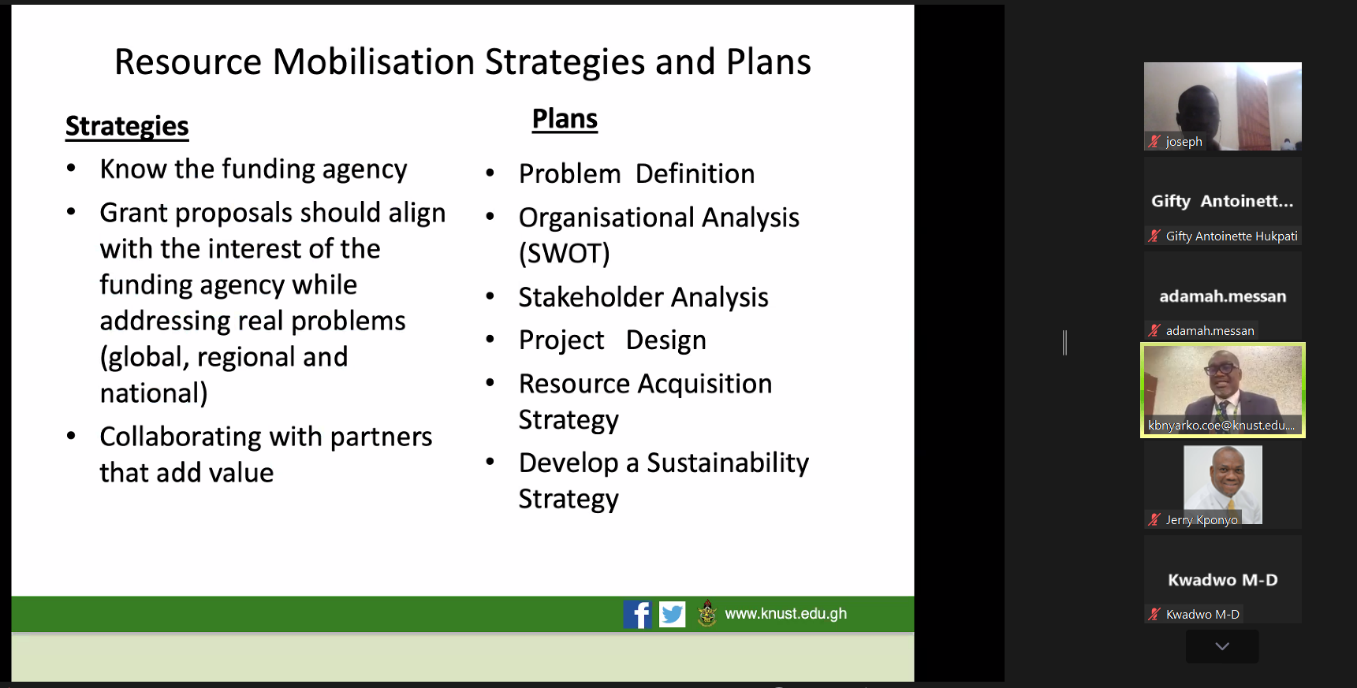
Screenshot of the presentation slide
The West Africa Sustainable Engineering Network for Development (WASEND) held its third capacity-building workshop on the theme ” Mobilizing Resources for Engineering Education and Research in Africa– What are the Critical Success Factors?”. The workshop was hosted by the College of Engineering, University of Abomey Calavi, Benin on 6th December 2022 virtually with Prof. Kwabena Biritwum Nyarko, Provost, College of Engineering, KNUST as the resource person.
The presentation and discussions were centered on the sources of funding, the importance of networks and partnerships, and how to win research grants.
The Network Coordinator, Prof. Jerry John Kponyo welcomed participants to the 3rd in the series of capacity-building workshops. “We are honored to have the Provost of the College of Engineering speak to us on how to mobilize resources for engineering education and research out of his rich experience in managing numerous projects and grants,” he stated.
Prof. Kwabena Biritwum Nyarko is the Provost of the College of Engineering and the immediate past Vice Dean of the Faculty of Civil and Geo-Engineering. He is also the Project Lead for the KNUST Engineering Education Project (KEEP), a World Bank-funded Africa Center of Excellence (ACE) project through the Government of Ghana, and the Principal Investigator for the Rural Evidence and Learning for Water (REAL-Water) program. He is also the Chairman of the WASEND Executive Board.
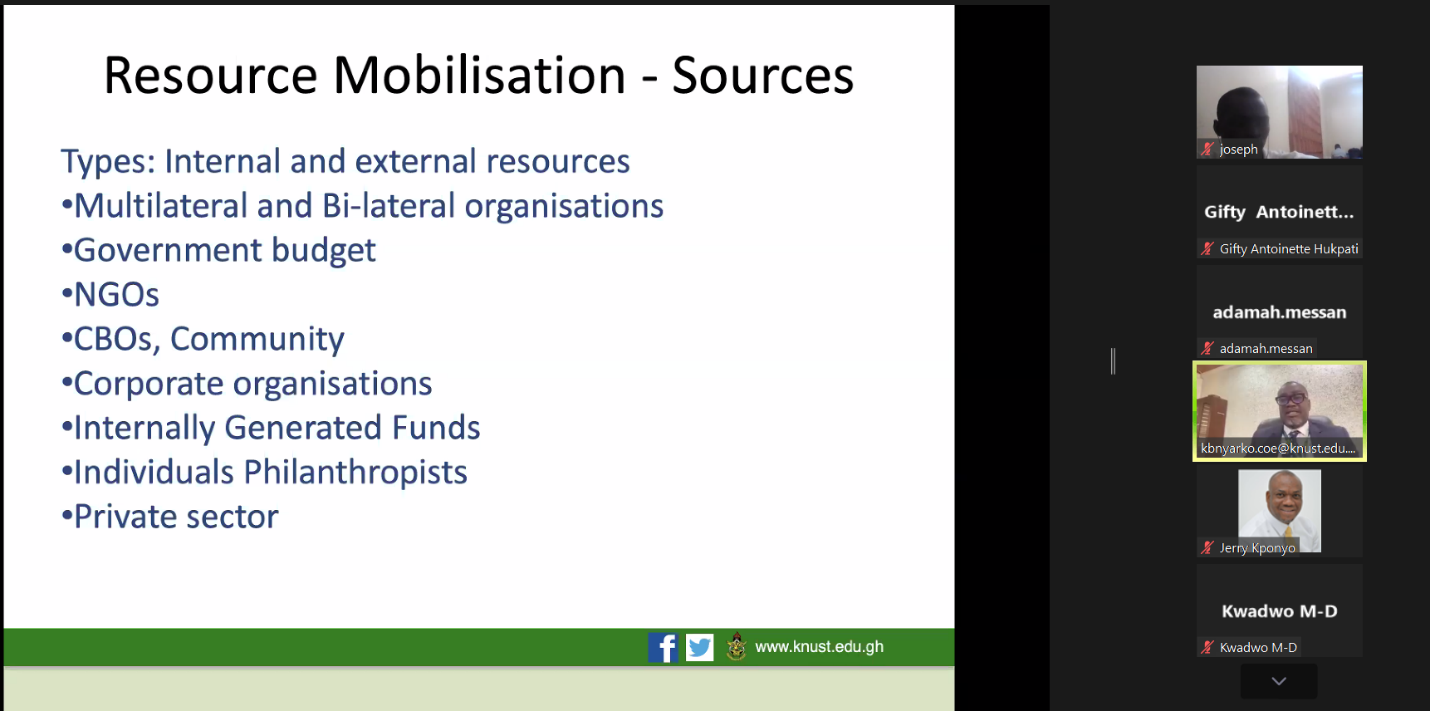
Prof. Nyarko listed some internal and external resource mobilization sources as Multilateral and Bilateral organizations, government budgets, NGOs, Corporate organizations, internally generated Funds, individual Philanthropists, and the private sector.
He enlightened participants on the strategies and plans for research mobilizations and hinted that one should make a thorough research on the funding body or agency and be sure that grant proposals align with the interest of the funding agency in addressing real problems. He indicated that the problem should be well defined with the organizational and stakeholder Strength, Weakness, Opportunities, and Threats (SWOT) analysis performed. He added that a resource mobilization and sustainability strategy should be developed as well.
In discussing the critical success factors, Prof, Nyarko indicated that networks and partnerships are very important when it comes to resource mobilization. He mentioned WASEND and the Africa Centers of Excellence (ACEs) collaborations as vivid examples of successful networks and partnerships. He stated that having a Memorandum of Understanding (MoU) with Academic and Research institutions is a step in the right direction. “Having a strong academia and industry relationship and leveraging on alumni contribution and support is a critical resource mobilization success factor,” he intimated.
He concluded that addressing developmental challenges and problems that affect a large number of people and communities gives a greater chance for grants and funding opportunities.
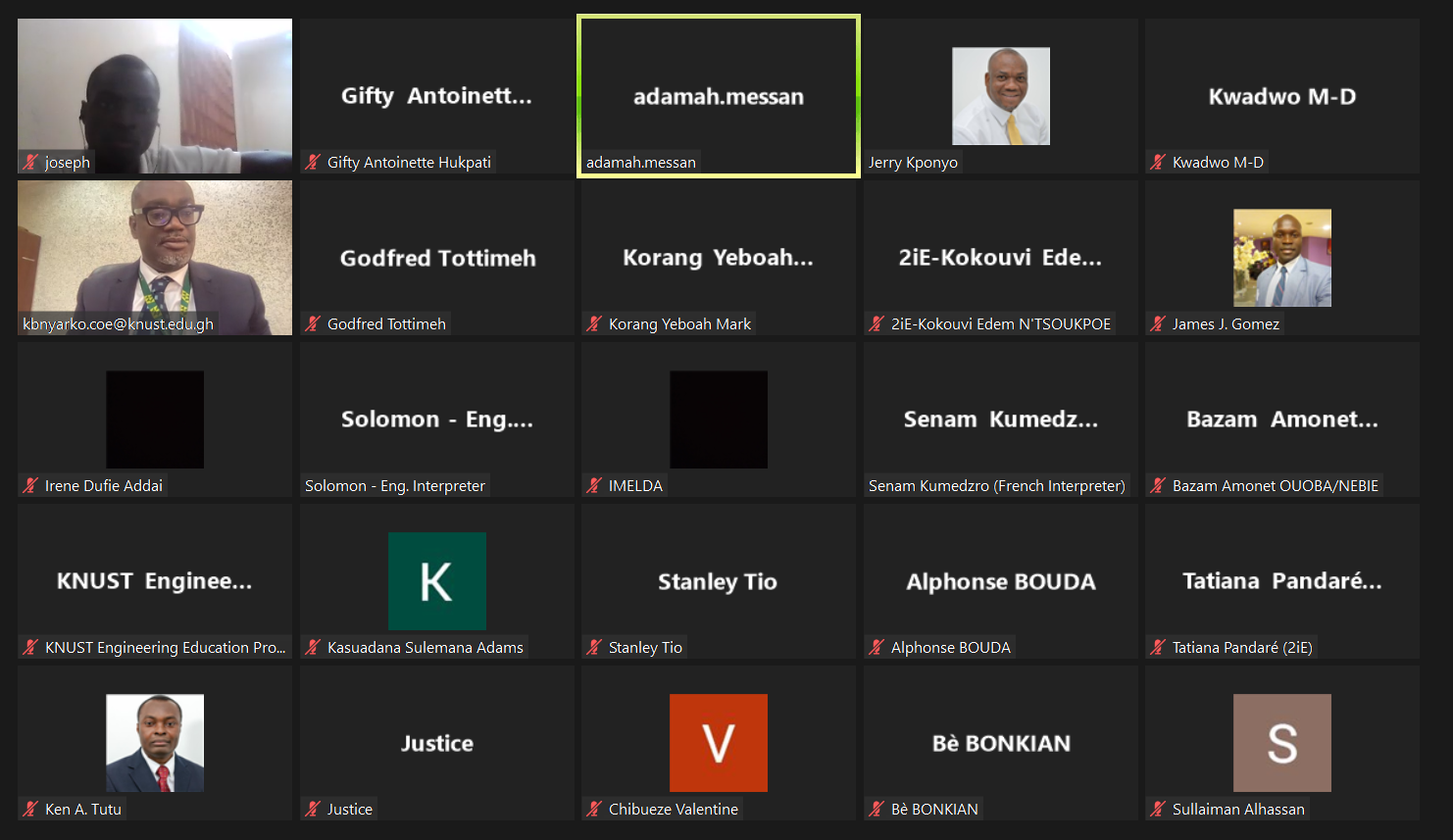
Screenshot of participants at the workshop
Participants enquired about grant management and the speaker’s personal experience in acquiring grants, best practices in staff motivation processes, and bottlenecks in procurement processes among other interactive discussions.
In response to the issues raised, the speaker indicated that grant management is very important and understanding the rules of the funding agency is crucial. He said that recruiting specific personnel outside the KNUST system for specific project portfolios helps in achieving targets as these personnel work full-time on the project. Speaking on his personal experience in terms of staff motivation, he said some funding bodies do not give financial motivation to staff but they support conference participation and other staff capacity-building workshops.
He mentioned that field visits and engagements should be organized to strengthen the academic relationship with industry and the private sector.
In his closing remarks, Prof. Jerry John Kponyo stated that WASEND aims to bridge the gap between academia and industry through structured seminars and capacity-building workshops and thanked the resource person for his insightful presentation and for sharing his rich experience with participants. He also thanked the African Association of Universities (AAU) and the translation team for their excellent translation service. He also appreciated the participants and the WASEND team for making the workshop a success.
WASEND is a network of World Bank-designated African Centers of Excellence (ACEs) in engineering education and research. The network seeks to leverage the expertise of its members and build synergies to address Sub-regional challenges in energy and digital development.
It is made up of four West African Colleges of Engineering:
- College of Engineering, Kwame Nkrumah University of Science and Technology (KNUST), Ghana
- International Institute of Water and Environmental Engineering (2IE), Burkina Faso
- University of Science, Engineering, and Technology (USET), Gambia
- College of Engineering, University of Abomey Calavi, Benin

